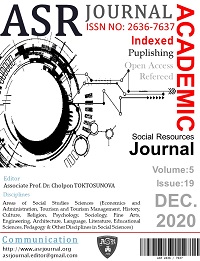Author :
Abstract
Yeni Kamu Yönetimi (YKY) anlayışı ile birlikte devlet-vatandaş ilişkileri farklı bir boyut kazanmış ve vatandaş odaklılık kavramına daha fazla odaklanılmaya başlanmıştır. Bu kapsamda gerek YKY’nin gerekse vatandaş odaklılığın önemli araçlarından biri de “E-Devlet”tir. E-Devlet en genel tanımıyla bir ülkede kamuya ait tüm işlemlerin Bilgi ve İletişim Teknolojileri (BİT) ile sağlanmasıdır. E-Devlet; zamandan-mekandan bağımsız erişim ve düşük hizmet maliyetleri gibi bazı yerleşik avantajlara sahiptir. Bu kapsamda çoğu ülke için E-Devlet ile hedeflenen hususlar vatandaş odaklılık ve hizmet maliyetlerinin düşürülmesi olmuştur. Ancak bu hedeflere tam anlamıyla ulaşabilmek veya ulaşılsa dahi E-Devleti bir üst seviyeye çıkarabilmek güçtür. Bu paralelde son dönemde dünya geneline bakıldığında başarısız E-Devlet girişimlerinin sayısında artış olduğu görülmektedir. Genel bir eğilim olarak bu başarısızlığın nedeni yönetişimden ziyade yalnızca teknolojiye odaklanılmasıdır. Bu kapsamda çalışmanın amacı E-Devlet girişimlerine vatandaş/yönetişim odağında başarı ve mükemmelliği getirmeyi amaçlayan “E-Devlet mühendisliği” kavramını tanıtmaktır. Çalışma yönetişim merkezli girişimlerin ve E-Devlet mühendisliğinin temel özelliklerini ortaya koymakta ve nihai olarak E-Devlet ile ilgili çıkarımlarda bulunmaktadır. Bu kapsamda çalışmada öncelikle E-Devlet ve yönetişim ilişkisi ortaya konulmuş olup sonrasında E-Devletin boyutları ve E-Devlet mühendisliği kavramı değerlendirilmiştir.
Keywords
Abstract
With the New Public Management (NPM) approach, the state-citizen relations have gained a different dimension and the concept of citizen-oriented has started to be focused more. In this context, one of the important tools of both NPM and citizen-orientation is “E-Government”. In the most general definition, e-government is the provision of all public transactions in a country through Information and Communication Technologies (ICTs). E-Government; it has some built-in advantages such as time-place independent access and low service costs. In this context, for most countries, the targeted issues with e-government have been citizen-orientation and reducing service costs. However, it is difficult to fully achieve these goals or to take the e-government to the next level even if they are achieved. In parallel with this, when the world is considered, it is seen that the number of unsuccessful e-government initiatives has increased. As a general trend, the reason for this failure is a focus solely on technology rather than governance. In this context, the aim of the study is to introduce the concept of “e-government engineering”, which aims to bring success and excellence to e-government initiatives with a focus on citizen/governance. The study reveals the basic characteristics of governance-centered enterprises and e-government engineering and ultimately makes inferences about e-government. In this context, first of all, the relationship between e-government and governance was presented, and then the dimensions of e-government and the concept of e-government engineering were evaluated.
